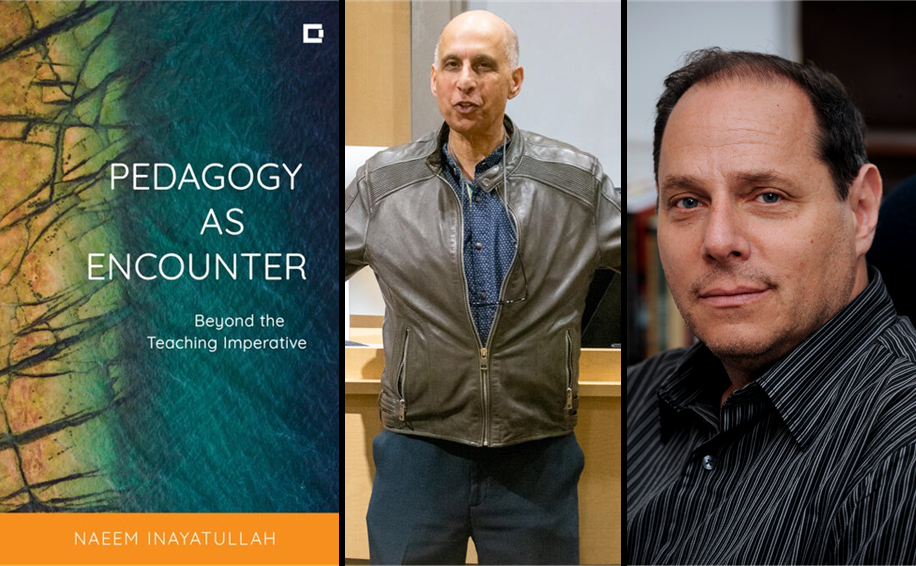“Pedagogy as Encounter” is an honest, innovative, erudite, and profoundly student-centered work.
Naeem Inayatullah embraces the range of human behavior in the classroom, including emotions, discomfort, paradox, and spirituality. His method rejects all kinds of political correctness in favor of the openness of each student’s encounter with professor, text, and group.
Naeem connects the personal and the political through a simple self-reflexive question: “What is in this for me … the teacher?”
He declares the teacher an imperialist by definition and suggests that any understanding of pedagogy must begin with such an admission. He then begins by deconstructing his own learning and examples from his family life. Nearly all the anecdotes are compelling, with the occasional helpful modest admission such as, “We never really know what sticks or why, do we?”
It is refreshing to read such an outlandish opening as “Teaching is impossible” especially since Naeem works out every angle of this generative three-word phrase. It is a good hook and leads to the five-word distillation of his project: a pedagogy of encounter and emergence. This phrase explicitly repudiates the notion of “pedagogy-as-liberation,” the default position of the humanities.
“Pedagogy as Encounter” gets at these questions in innovative ways.
In form, it is anecdotal, aggregative, and accessible.
In field, it emerges from political economy by way of collective psychology. It insists on desire-based learning, amplifying the interdependence of student and teacher needs.
There is a reward every few pages. For example, Naeem’s own epiphany about the political lie that “knowledge is power.” This leads to his provocative declaration that the professoriate may simply be peddlers of soft power — and should consider the possibility.
I am often drawn to works that interrogate first principles such as “the impulse to teach” or “why learn at all?” I am especially drawn to authors who can come up with such bold aphorisms as, “No one wants to learn, but everyone has an insatiable curiosity.”
The book is a hybrid work of memoir, essay, pedagogy, social thought, political analysis, academic theory, and class lecture that proceeds by way of anecdote.
The writing itself has a frictionless flow and Naeem has an eye and ear for the key phrase.
Here are three: “critical love”; “crushed hope as a viable resource”; the female student who realizes she is a “projective device.”
Here are the implications: criticism in the classroom can be an act of love; professors must be able to transcend pessimism and render dashed hopes as the foundation of new ideas; students should never have to be self-conscious of their identities, bodies, or self-presentation.
Regardless of your political perspective or your pedagogical method, “Pedagogy of Encounter” can be read simply as a personal quest rendered as an act of witnessing, a neat trick. The reader should settle in for the best kind of bumpy ride, alternately challenging and illuminating.
Thanks to Naeem for writing “Pedagogy as Encounter.” And good luck at changing pedagogy.
Joel Dinerstein is Professor of English at Tulane University and the former director of its American Studies program. His work focuses on the impact of Black music and culture on American society. His first book was an award-winning theory of jazz and industrialization, “Swinging the Machine: Technology, Modernity, and African-American Culture.” He is also the author of “The Origins of Cool in Postwar America,” the first cultural history of cool. He curated the exhibit “American Cool” at the National Portrait Museum; his Ted Talk on the subject is entitled “Why Cool Matters.” Dinerstein received the Student Body Award for Excellence in Undergraduate Teaching at Tulane in 2010.

